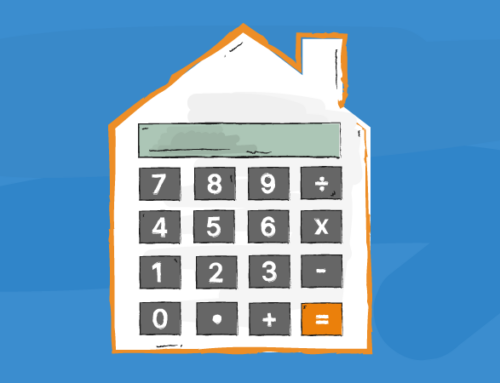A Landlord’s Guide to Universal Credit

Universal Credit has been introduced by the Government to support people on a low income or those out of work. It replaces six existing benefits and is currently being rolled out across the UK. This guide explores how the new system will affect landlords of benefit tenants.
Universal Credit is based on a single monthly payment, which is transferred directly into a claimant’s bank account.
What is Universal Credit?
Universal Credit is a single monthly payment for people in or out of work. It merges some of the benefits and tax credits that they might be receiving now.
Universal Credit will replace the following:
- Income-based Jobseekers’ Allowance
- Income-related Employment and Support Allowance
- Income Support
- Child Tax Credit
- Working Tax Credit
- Housing Benefit
To receive Universal Credit, the individual must:
- Be 18 or over
- Be under State Pension age
- Not be in full-time education or training
- Not have savings over £16,000
Those with savings over £6,000 or workers who earn enough money to cover their basic living costs will receive less Universal Credit.

A Landlord’s Guide to Universal Credit
Those living with a partner will need to make a joint claim as a couple. If one partner isn’t eligible, their savings and income will still be taken into account.
How is it paid?
Universal Credit is paid in the following ways:
- It will be paid monthly in arrears into a bank account of the claimant’s choice.
- If a claimant receives help with their rent, this will be included in their monthly payment – they will then pay their landlord directly.
- If the claimant lives with a partner and they are both eligible, they will receive one monthly joint payment.
- It can take several weeks after the claimant makes their claim to receive their first payment.
Universal Credit payments are made up of different amounts, depending on the claimant’s individual circumstances
Can tenants receive help with housing payments?
If tenants need additional help with their housing cost payments, they must satisfy three conditions – payment, liability and occupation – to qualify.
The Department for Work and Pensions (DWP) will, in most cases, pay eligible housing costs directly to the claimant as part of the single Universal Credit payment. For private tenants, their additional amount for housing costs will be whichever is lower out of their actual costs or the Local Housing Allowance rate.
How can you protect yourself?
Most private landlords won’t see any change with the introduction of Universal Credit. This is because most working-age claimants in the private rental sector are already used to receiving their Housing Benefit/Local Housing Allowance payments directly, and are responsible for paying their rent to their landlord.
It is advised that all private landlords who currently receive a payment from the local authority familiarise themselves with the changes, and look at ways to prepare themselves.
How can you help tenants prepare?
You can help your tenants get ready for Universal Credit by encouraging them to:
- Go online – Universal Credit is designed to be claimed online. If tenants don’t have access to the internet or are not confident using a computer, they can go to their local Jobcentre to get help.
- Open a bank account – Universal Credit will usually be paid monthly in arrears into a single account, so your tenants will need to be able to set up Direct Debits or standing orders to pay their bills and rent.
- Use the Universal Credit Personal Planner – This checks what changes your tenants may need to make to get ready for Universal Credit.
- Read the welcome guide – All claimants receive a Universal Credit welcome guide when they make a claim, to help support them through the changes.
The welcome guide is available online, and is a good basis for your conversations with tenants.
Can tenants get help with rent payments while awaiting Universal Credit?
A number of safeguards are in place to help tenants and support them in managing their money. Budgeting assistance will be offered when claimants first receive Universal Credit. This may be money advice or, depending on the claimant’s individual circumstances, an advance of benefit.
A claimant can request a Universal Credit new claim advance if they are in financial difficulty and cannot manage until their first monthly payment of Universal Credit. This will be a proportion of the full payment, which will be recovered over a period of time.
Alternative Payment Arrangements are available in some circumstances for claimants who genuinely cannot manage their monthly payment. This may mean having a managed payment made to their landlord, a split payment, or a more frequent payment.
How can you ensure that rent is paid?
Claimants will be expected, if possible, to arrange their own rent payments as if they were in full-time work.
Landlords must think about how this will fit in with their own payment calendars. If landlords have previously received a managed rent payment from the local authority, they will need to speak to their tenants to agree arrangements for collecting rent from them.
Universal Credit is assessed on a monthly basis and is paid monthly in arrears. The first payment is usually received one month and 14 days after the claimant first submits their claim. However, many new claimants will be coming from work and will therefore be able to support themselves in the first month using their final payment of earnings.
How does the tenant prove the rent price?
All claimants will be asked to provide the appropriate evidence to support their Universal Credit claim. If a tenant does not have a copy of their tenancy agreement, the DWP may accept a letter from the landlord, confirming the current rent and service charge.
Claimants should inform the DWP of any changes that may affect their Universal Credit payment, including annual rent rises.
What if the tenant is in rent arrears?
The DWP expects landlords to follow their usual rent collection practices. However, if the claimant is unable or unwilling to resolve a payment issue that puts them at risk of eviction, the DWP can assist landlords by considering a managed payment to the landlord.
When arrears reach the equivalent of one month’s rent, the DWP will review the situation, following a notification from the claimant or the landlord. At this stage, the DWP can offer the tenant budgeting support and may decide to pay the rent directly to the landlord.
When arrears reach an equivalent of two months’ rent, the landlord or claimant can ask the DWP to consider an Alternative Payment Arrangement.
To notify the DWP of either one or two months’ rent arrears, use the Universal Credit: Rent Arrears Form and send it to the DWP.
The DWP also offers an email address for landlords to use for urgent enquiries: uc.servicecentrehousing@dwp.gsi.gov.uk. This should only be used for cases facing eviction or in instances where landlords require an urgent response.
Can I be paid rent directly from the start of a claim?
When a claim for Universal Credit is made, it will be decided whether a claimant needs support with budgeting. This may include an Alternative Payment Arrangement, where the landlord is paid the rent directly.
If a tenant already gets a managed payment under Local Housing Allowance and then claims Universal Credit, the case will be assessed on an individual basis to see whether the direct rent payment should continue.
The housing and rent element of Universal Credit will go directly to the landlord if the tenant is deemed vulnerable.
Can rent arrears be recovered through Universal Credit?
Rent arrears for the property the tenant is currently living in are included in the list of deductions that can be made from a Universal Credit payment. The maximum rate at which deductions for rent arrears can be made is 20%. The rate will depend on the claimant’s circumstances.
Landlords can contact the Universal Credit Service Centre by calling 0345 600 0723 to request a third party deduction for rent arrears when they reach the equivalent of two months’ rent.
Can I inform DWP that a tenant needs support?
Information from third parties, such as landlords, can be considered when assessing a claimant’s ability to manage their finances.
For those tenants who are not yet in arrears, but may benefit from some budgeting advice, the DWP can refer the third party to appropriate supporting organisations.



